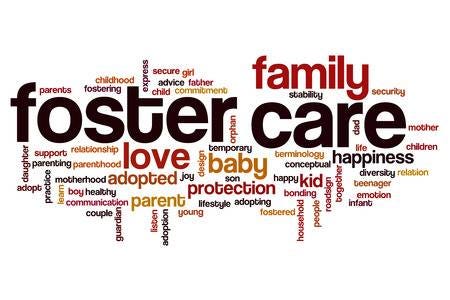Foster Care Reform: 15 Ways to Fix Foster Care in 2022

“More mental health, substance abuse treatment, support, and services are needed so birthparents can have access to the treatment services they need.”
The foster care system is struggling in our nation.
Agencies recognize the difficulties that foster families are facing, and are working hard in finding solutions to help both the foster families and the children placed in the homes. Yet, the challenges continue to grow. Indeed, many foster parents remain concerned, and confused, looking for answers and receiving little guidance. As Covid continues to place challenge upon challenge to the foster care system, the system needs to be improved, for all involved; the children and youth placed in the system, foster parents caring for the children, agencies and case workers, and the biological parents of the children, as well. Here are 15 ways to fix foster care.
1. Keeping families together.
The end goal of foster care is reunification. Yet, before a child is placed into foster care, agencies and families need to work together in an attempt at keeping the child within the family, if possible. More mental health, substance abuse treatment, support, and services are needed so birthparents can have access to the treatment services they need.
2. Understand how Covid affects foster care
As Covid continues to keep children and families inside during this time of self-isolation, more children face the risk of abuse and neglect while at home. Child welfare workers have had to suspend monthly visits with foster care families. Foster parents are faced with the difficulty of getting the services they need.
3. Time Spent in Care.
The average amount of time a child spends in foster care is 20 months, though that number can be significantly lower or higher, depending upon the child’s situation. The longer a child spends in care, the more anxiety the child may experience due to separation. Whether it is reunification, adoption, or other options, agencies need to place more emphasis upon permanency of family for a child.
4. Online training and support for foster parents
Foster families always rely on community support, but they need it more than ever now. With Covid, foster parents have found it increasingly difficult in regards to attaining their required training hours. Foster parents also need more online support services, including online orientations, social media support groups, and more virtual training opportunities.
5. Online visitations
Covid has disrupted visitations between the child and the birth family. Foster parents need a stronger support system in place with virtual conferencing and better supervision when it comes to online visitations between the child and the birth family.
6. Rules, policies and paperwork
Many agencies across the nation continue to be understaffed. As a result, there have been delays in new foster parents being trained and licensed, birth parents have met difficulties in attaining the requirements for reunification, and the adoption process for those children who are unable to be reunified has slowed as well. There needs to be less paperwork, less “red tape” and more action on behalf of the child.

“Reform is needed in order to keep children safe.”
7. Reunification reform
While the end goal of foster care is reunification between the child and the birth family, premature reunification often leads to a child’s reentry into the foster care system or even death. Furthermore, current law allows uprooting and placing the child with an unemployed relative who has ongoing domestic violence, anger issues, and a substance abuse addiction simply because they’re blood relatives, even if the child has never met that relative. Reform is needed in order to keep children safe.
8. Therapy
Many times, children placed into foster care suffer from mental health issues. Issues from anxiety can manifest themselves in a number of ways. Professional therapy and counseling is essential for the well-being of the child. In addition, other forms of therapy, such as art, music, animal, and play therapy should also be available.
9. Helping those who age out
Each year, around 20,000 foster children age out of the system and attempt to begin life on their own. For most young adults leaving home for the first time, they have someone to rely on when facing challenges, difficulties, and trials. Whether the problems are financial, emotional, school-oriented, or simply a flat tire that needs to be fixed, most young adults can pick up a phone and call an adult who is quick to help. Youth in foster care who age out of the system many times do not have this type of support; no one to call, no one who can come to their aid. Youth who age out of the system face an array of problems and challenges.
10. Kinship care
When possible, kinship care should be considered. Kinship foster care is an out-of-home arrangement for full-time care by relatives, including grandparents, aunts and uncles, cousins, and sometimes even older siblings. Kinship care allows families to stay together, and studies indicate it helps improve mental health, stability, and behavior.
11. Co-parenting
For many children in foster care, they come from a long cycle of family members placed in foster care before them. By showing compassion, by reaching out, and by helping birth parents of children in foster care, we not only help them, we also help their children as well. Co-parenting sees the foster parent working alongside the biological parents of the child.

“Co-parenting sees the foster parent working alongside the biological parents of the child.”
12. Child sex trafficking
It is estimated that between 100,000–300,000 children in America are victims of human trafficking. A large percentage of these children have at one time been in the foster care system. More advocates are needed to bring an end to this form of modern-day slavery for children.
13. Provide relief and support for caseworkers
Agencies need to ensure that their caseworkers are safe and not at risk. In addition, caseworkers are overworked, overwhelmed, under resourced, under paid, and understaffed. Today’s caseworkers need to be given more time, more funding, more resources, and more understanding from the public, from the courts, and from foster parents.
14. Faith-based help
The foster care system has been in crisis for a number of years, and it is clear that the problem is too big for both state and federal government. Faith-based organizations have an opportunity to truly impact the foster care system in a positive way. Faith-based groups can provide a safe, consistent, warm, and inviting atmosphere for children and birth family members to meet during visitation sessions.
15. Become a foster parent
With roughly 465,000 foster children in the United States alone, the need is strong for good foster homes and foster parents. Indeed, the need has become even stronger. By becoming a foster family, you can provide stability, safety and hope for a child in foster care.
While there have been steps to improve foster care across the nation, there is still much to do. Indeed, foster care is ever in need of reforming. We need to reshape the conversation about foster care, educating others about foster parenting, the challenges the children face, and how others can help without being a foster parent.
Dr. John DeGarmo is an international expert in parenting and foster care and is a TEDx Talk presenter. He and his wife have had over 60 children come through their home. Dr. John is a consultant to legal firms and foster care agencies, as well as an empowerment and transformational speaker and trainer on many topics about the foster care system. He is the author of several books, including The Little Book of Foster Care Wisdom: 365 Days of Inspiration and Encouragement for Foster Care Families and writes for several publications. Dr. John has appeared on CNN HLN, Good Morning, America, ABC, NBC, CBS, FOX, PBS, and elsewhere. He and his wife have received many awards, including the Good Morning America Ultimate Hero Award. He can be contacted at drjohndegarmo@gmail, through his Facebook page, Dr. John DeGarmo, or at The Foster Care Institute.

